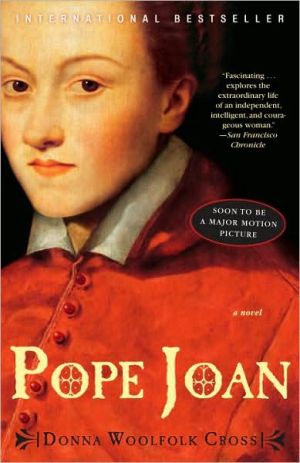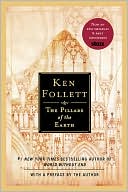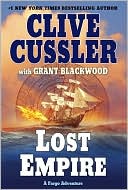Pope Joan
A world-wide bestseller, major motion picture and upcoming "Director's Cut" TV mini-series exclusively for the U.S!\ "Pope Joan has all the elements one wants in a historical drama–love, sex, violence, duplicity, and long-buried secrets. Cross has written an engaging book."–Los Angeles Times Book Review\ For a thousand years her existence has been denied. She is the legend that will not die–Pope Joan, the ninth-century woman who disguised herself as a man and rose to become the only female...
Search in google:
Soon to be a major motion picture from the company that brought you The Name of the Rose"Pope Joan has all the elements one wants in a historical drama–love, sex, violence, duplicity, and long-buried secrets. Cross has written an engaging book."–Los Angeles Times Book ReviewFor a thousand years her existence has been denied. She is the legend that will not die–Pope Joan, the ninth-century woman who disguised herself as a man and rose to become the only female ever to sit on the throne of St. Peter. Now in this riveting novel, Donna Woolfolk Cross paints a sweeping portrait of an unforgettable heroine who struggles against restrictions her soul cannot accept. Brilliant and talented, young Joan rebels against medieval social strictures forbidding women to learn. When her brother is brutally killed during a Viking attack, Joan takes up his cloak–and his identity–and enters the monastery of Fulda. As Brother John Anglicus, Joan distinguishes herself as a great scholar and healer. Eventually, she is drawn to Rome, where she becomes enmeshed in a dangerous web of love, passion, and politics. Triumphing over appalling odds, she finally attains the highest office in Christendom–wielding a power greater than any woman before or since. But such power always comes at a price . . . In this international bestseller, Cross brings the Dark Ages to life in all their brutal splendor and shares the dramatic story of a woman whose strength of vision led her to defy the social restrictions of her day.Publishers WeeklyCross makes an excellent, entertaining case in her work of historical fiction that, in the Dark Ages, a woman sat on the papal throne for two years. Born in Ingelheim in A.D. 814 to a tyrannical English canon and the once-heathen Saxon he made his wife, Joan shows intelligence and persistence from an early age. One of her two older brothers teaches her to read and write, and her education is furthered by a Greek scholar who instructs her in languages and the classics. Her mother, however, sings her the songs of her pagan gods, creating a dichotomy within her daughter that will last throughout her life. The Greek scholar arranges for the continuation of her education at the palace school of the Lord Bishop of Dorstadt, where she meets the red-haired knight Gerold, who is to become the love of her life. After a savage attack by Norsemen destroys the village, Joan adopts the identity of her older brother, slain in the raid, and makes her way to Fulda, to become the learned scholar and healer Brother John Anglicus. After surviving the plague, Joan goes to Rome, where her wisdom and medical skills gain her entrance into papal circles. Lavishly plotted, the book brims with fairs, weddings and stupendous banquets, famine, plague and brutal battles. Joan is always central to the vivid action as she wars with the two sides of herself, "mind and heart, faith and doubt, will and desire." Ultimately, though she leads a man's life, Joan dies a woman's death, losing her life in childbirth. In this colorful, richly imagined novel, Cross ably inspires a suspension of disbelief, pulling off the improbable feat of writing a romance starring a pregnant pope. (Aug.)
Ballantine Reader's Circle: Pope Joan (Excerpt)\ Chapter 1\ Thunder sounded, very near, and the child woke. She moved in the bed, seeking the warmth and comfort of her older brothers' sleeping forms. Then she remembered. Her brothers were gone.\ It was raining, a hard spring downpour that filled the night air with the sweet-sour smell of newly plowed earth. Rain thudded on the roof of the canon's cottage, but the thickly woven thatching kept the room dry, except for one or two small places in the corners where water first pooled and then trickled in slow fat drops to the beaten earth floor.\ The wind rose, and a nearby oak began to tap an uneven rhythm on the cottage walls. The shadow of its branches spilled into the room. The child watched, transfixed, as the monstrous dark fingers wriggled at the edges of the bed. They reached out for her, beckoning, and she shrank back.\ Mama, she thought. She opened her mouth to call out, then stopped. If she made a sound, the menacing hand would pounce. She lay frozen, watching, unable to will herself to move. Then she set her small chin resolutely. It had to be done, so she would do it. Moving with exquisite slowness, never taking her eyes off the enemy, she eased herself off the bed. Her feet felt the cool surface of the earthen floor; the familiar sensation was reassuring. Scarcely daring to breathe, she backed toward the partition behind which her mother lay sleeping. Lightning flashed; the fingers moved and lengthened, following her. She swallowed a scream, her throat tightening with the effort. She forced herself to move slowly, not to break into a run.\ She was almost there. Suddenly, a salvo of thunder crashed overhead. At the same moment something touched her from behind. She yelped, then turned and fled around the partition, stumbling over the chair she had backed into.\ This part of the house was dark and still, save for her mother's rhythmic breathing. From the sound, the child could tell she was deeply asleep; the noise had not wakened her. She went quickly to the bed, lifted the woolen blanket and slid under it. Her mother lay on her side, lips slightly parted; her warm breath caressed the child's cheek. She snuggled close, feeling the softness of her mother's body through her thin linen shift.\ Gudrun yawned and shifted position, roused by the movement. Her eyes opened, and she regarded the child sleepily. Then, waking fully, she reached out and put her arms around her daughter.\ "Joan," she chastised gently, her lips against the child's soft hair. "Little one, you should be asleep."\ Speaking quickly, her voice high and strained from fear, Joan told her mother about the monster hand.\ Gudrun listened, petting and stroking her daughter and murmuring reassurances. Gently she ran her fingers over the the child's face, half-seen in the darkness. She was not pretty, Gudrun reflected ruefully. She looked too much like him, with his thick English neck and wide jaw. Her small body was already stocky and heavyset, not long and graceful like Gudrun's people. But the child's eyes were good, large and expressive and rich-hued, green with dark grey smoke-rings at the center. Gudrun lifted a strand of Joan's baby hair and caressed it, enjoying the way it shone, white-gold, even in the darkness. My hair, she thought gloatingly. Not the coarse black hair of her husband or his cruel dark people. My child. She wrapped the strand gently around her forefinger and smiled. This one, at least, is mine.\ Soothed by her mother's attentions, Joan relaxed. In playful imitation, she began to tug at Gudrun's long braid, loosening it till her hair lay tumbled about her head. Joan marvelled at it, spilling over the dark woolen coverlet like rich cream. She had never seen her mother's hair unbound. At the canon's insistence, Gudrun wore it always neatly braided, hidden under a rough linen cap. A woman's hair, her husband said, was the net wherein Satan catches a man's soul. And Gudrun's hair was extraordinarily beautiful, long and soft and pure white-gold, without a trace of gray, though she was now an old woman of thirty-six winters.\ "Why did Matthew and John go away?" Joan asked suddenly. Her mother had explained this to her several times, but Joan wanted to hear it again.\ "You know why. Your father took them with him on his missionary journey."\ "Why couldn't I go too?"\ Gudrun sighed patiently. The child was always so full of questions. "Matthew and John are boys; one day they will be priests like your father. You are a girl, and therefore such matters do not concern you." Seeing that Joan was not content with that, she added, "Besides, you are much too young."\ Joan was indignant. "I was four in Wintarmanoth!"\ Gudrun's eyes lit with amusement as she looked at the pudgy baby face. "Ah, yes, I forgot, you are a big girl now, aren't you? Four years old! That does sound very grown up."\ Joan lay quietly while her mother stroked her hair. Then she asked, "What are heathens?" Her father and brothers had spoken a good deal about heathens before they left. Joan did not understand what heathens were, exactly, though she gathered it was something very bad.\ Gudrun stiffened. The word had conjuring powers. It had been on the lips of the invading soldiers as they pillaged her home and slaughtered her friends and family. The dark, cruel soldiers of the Frankish Emperor Karolus. "Magnus," people called him now that he was dead. "Karolus Magnus." Charles the Great. Would they name him so, Gudrun wondered, if they had seen his army tear Saxon babes from their mother's arms, swinging them round before they dashed their heads against the reddened stones? Gudrun withdrew her hand from Joan's hair and rolled onto her back.\ "That is a question you must ask your father," she said.\ Joan did not understand what she had done wrong, but she heard the strange hardness in her mother's voice and knew that she would be sent back to her own bed if she didn't think of some way to repair the damage. Quickly she said, "Tell me again about the Old Ones."\ "I cannot. Your father disapproves of the telling of such tales." The words were half statement, half question.\ Joan knew what to do. Placing both hands solemnly over her heart, she recited The Oath exactly as her mother had taught it to her, promising eternal secrecy on the sacred name of Thor the Thunderer.\ Gudrun laughed and drew Joan close again. "Very well, little quail. I will tell you the story, since you know so well how to ask."\ Her voice was warm again, wistful and melodic as she began to tell of Woden and Thunor and Freya and the other gods who had peopled her Saxon childhood before the armies of Karolus brought the Word of Christ with blood and fire. She spoke liltingly of Asgard, the radiant home of the gods, a place of golden and silver palaces, which could only be reached by crossing Bifrost, the mysterious bridge of the rainbow. Guarding the bridge was Heimdall the Watchman, who never slept, whose ears were so keen he could even hear the grass grow. In Valhalla, the most beautiful palace of all, lived Woden, the father-god, on whose shoulders sat the two ravens Hugin, Thought, and Munin, Memory. On his throne, while the other gods feasted, Woden contemplated what Thought and Memory told him.\ Joan nodded happily. This was her favorite part of the story.\ "Tell about the Well of Wisdom," she begged.\ "Although he was already very wise," explained her mother, "Woden always sought greater wisdom. One day he went to the Well of Wisdom, guarded by Mimir the Wise, and asked for a draught from it. 'What price will you pay?' asked Mimir. Woden replied that Mimir could ask what he wished. 'Wisdom must always be bought with pain,' replied Mimir. 'If you wish a drink of this water you must pay for it with one of your eyes.'"\ Eyes bright with excitement, Joan exclaimed, "And Woden did it, Mama, didn't he? He did it!"\ Her mother nodded. "Though it was a hard choice, Woden consented to lose the eye. He drank the water. Afterward, he passed on to mankind the wisdom he had gained."\ Joan looked up at her mother, her eyes wide and serious. "Would you have done it, Mama--to be wise, to know about all things?"\ "Only gods make such choices." Seeing the child's persistent look of question, Gudrun confessed, "No. I would have been too afraid."\ "So would I," Joan said thoughtfully. "But I would want to do it. I would want to know what the well could tell me."\ Gudrun smiled down at the intent little face. "Perhaps you would not like what you would learn there. There is a saying among our people. 'A wise man's heart is seldom glad.'"\ Joan nodded, though she did not really understand. "Now tell about the Tree," she said, snuggling close to her mother again.\ Gudrun began to describe Irminsul, the wondrous universe tree. It had stood in the holiest of the Saxon groves at the source of the Lippe river. Her people had worshipped at it until it was cut down by the armies of Karolus.\ "It was very beautiful," her mother said, "and so tall that no one could see the top. It--"\ She stopped. Suddenly aware of another presence, Joan looked up. Her father was standing in the doorway.\ Her mother sat up in bed. "Husband," she said. "I did not look for your return for another fortnight."\ The canon did not respond. He took a wax taper from the table near the door and crossed to the hearthfire, where he plunged it into the glowing embers until it flared.\ Gudrun said nervously, "The child was frightened by the thunder. I thought to comfort her with a harmless story."\ "Harmless!" The canon's voice shook with the effort to control his rage. "You call such blasphemy harmless?" He covered the distance to the bed in two long strides, set down the taper, and pulled the blanket off, exposing them. Joan lay with her arms around her mother, half-hidden under a curtain of white-gold hair.\ For a moment the canon stood stupefied with disbelief, looking at Gudrun's unbound hair. Then his fury overtook him. "How dare you! When I have expressly forbidden it!" Taking hold of Gudrun, he started to drag her from the bed. "Heathen witch!"\ Joan clung to her mother. The canon's face darkened. "Child, begone!" he bellowed. Joan hesitated, torn between fear and the desire to somehow protect her mother.\ Gudrun pushed her urgently. "Yes, go. Go quickly."\ Releasing her hold, Joan dropped to the floor and ran. At the door, she turned and saw her father grab her mother roughly by the hair, wrenching her head back, forcing her to her knees. Joan started back into the room. Terror stopped her short as she saw her father withdraw his long, bonehandled hunting knife from his corded belt.\ "Forsachistu diabolae?" he asked Gudrun in Saxon, his voice scarcely more than whisper. When she did not respond, he placed the point of the knife against her throat. "Say the words," he growled menacingly. "Say them!"\ "Ec forsacho allum diaboles," Gudrun responded tearfully, her eyes blazing defiance, "wuercum and wuordum, thunaer ende woden ende saxnotes ende allum..."\ Rooted with fear, Joan watched her father pull up a heavy tress of her mother's hair and draw the knife across it. There was a ripping sound as the silken strands parted; a long band of white gold floated to the floor.\ Clapping her hand over her mouth to stifle a sob, Joan turned and ran.\ In the darkness, she bumped into a shape that reached out for her. She squealed in fear as it grabbed her. The monster hand! She had forgotten about it! She struggled, pummelling at it with her tiny fists, resisting with all her strength, but it was huge, and held her fast.\ "Joan! Joan, it's all right. It's me!"\ The words penetrated her fear. It was her ten-year-old brother Matthew, who had returned with her father.\ "We've come back. Joan, stop struggling! It's all right. It's me." Joan reached up, felt the smooth surface of the pectoral cross that Matthew always wore, then slumped against him in relief.\ Together they sat in the dark, listening to the soft splitting sounds of the knife ripping through their mother's hair. Once they heard Mama cry out in pain. Matthew cursed aloud. An answering sob came from the bed where Joan's seven-year-old brother John was hiding under the covers.\ At last the ripping sounds stopped. After a brief pause the canon's voice began to rumble in prayer. Joan felt Matthew relax; it was over. She threw her arms around his neck and wept. He held her and rocked her gently.\ After a time, she looked up at him.\ "Father called Mama a heathen."\ "Yes."\ "She isn't," Joan said hesitantly, "is she?"\ "She was." Seeing her look of horrified disbelief, he added, "a long time ago. Not any more. But those were heathen stories she was telling you."\ Joan stopped crying; this was interesting information.\ "You know the first of the Commandments, don't you?"\ Joan nodded and recited dutifully, "Thou shalt have no other gods before me."\ "Yes. That means that the gods Mama was telling you about are false; it is sinful to speak of them."\ "Is that why Father...?"\ "Yes, " Matthew broke in. "Mama had to be punished for the good of her soul. She was disobedient to her husband, and that also is against the law of God."\ "Why?"\ "Because it says so in the Holy Book." He began to recite, "'For the husband is the head of the wife; therefore, let the wives submit themselves unto their husbands in everything.'"\ "Why?"\ "Why?" Matthew was taken aback. No one had ever asked him that before. "Well, I guess because...because women are by nature inferior to men. Men are bigger, stronger and smarter."\ "But--" Joan started to respond but Matthew cut her off.\ "Enough questions, little sister. You should be in bed. Come now." He carried her to the bed and placed her beside John, who was already sleeping.\ Matthew had been kind to her; to return the favor, Joan closed her eyes and burrowed under the covers as if to sleep.\ But she was far too troubled for sleep. She lay in the dark, peering at John as he slept, his mouth hanging slackly open.\ He can't recite from the Psalter and he's seven years old. Joan was only four but already she knew the first ten psalms by heart.\ John wasn't smart. But he was a boy. Yet how could Matthew be wrong? He knew everything; he was going to be a priest, like father.\ She lay awake in the dark, turning the problem over in her mind.\ Towards dawn she slept, restlessly, troubled by dreams of mighty wars between jealous and angry gods. The angel Gabriel himself came from heaven with a flaming sword to do battle with Thor and Freya. The battle was terrible and fierce, but in the end the false gods were driven back, and Gabriel stood triumphant beforethe gates of paradise. His sword had disappeared; in his hand gleamed a short, bone-handled knife.
\ From the Publisher“It is so gratifying to read about those rare heroes whose strength of vision enables them to ignore the almost overpowering messages of their own historical periods. . . . Pope Joan has all the elements one wants: love, sex, violence, duplicity and long-buried secrets. Cross has written an engaging book.” –Los Angeles Times Book Review\ “A fascinating and moving account of a woman’s determination to learn, despite the opposition of family and society. Highly recommended.”–Library Journal (starred review)\ “Cross makes an excellent, entertaining case that in the Dark Ages, a woman sat on the papal throne. . . . A colorful, richly imagined novel.” –Publishers Weekly\ “Pope Joan reveals the harsh realities of the Dark Ages. Violence is rife in the government, church and home; logic and reason are shunned as “dangerous ideas” and women are considered useful only as men’s servants and child bearers. The novel explores the extraordinary life of an independent, intelligent and courageous woman who overcomes oppression and ascends to the highest level of religious power. . . . Cross’ masterful use of anticipation, as well as the sweeping historical landscape of the story, keep Pope Joan intriguing. . . . An exciting journey through history as it’s being made.”–San Francisco Chronicle\ “Eloquently written and spellbinding in its account of this legendary figure.” –Arizona Republic\ “The life of an intelligent, headstrong woman in 9th-century Europe, the kind of woman who might have dared such an adventure in an era when obedience was a woman’s most admired trait. . . . Cross succeeds admirably, grounding her fast-moving tale in a wealth of rich historical detail.” –Orlando Sentinel\ “A story of passion and faith–and a reminder that some things never change, only the stage and players do.”–Fort Worth Star-Telegram\ “A remarkable woman uses her considerable intellect–and more than a little luck–to rise from humble origins to become the only female Pope, in this breakneck adventure.” –Kirkus Reviews\ “A page-turner!” –Glamour\ \ \ \ \ \ Publishers Weekly - Publisher's Weekly\ Cross makes an excellent, entertaining case in her work of historical fiction that, in the Dark Ages, a woman sat on the papal throne for two years. Born in Ingelheim in A.D. 814 to a tyrannical English canon and the once-heathen Saxon he made his wife, Joan shows intelligence and persistence from an early age. One of her two older brothers teaches her to read and write, and her education is furthered by a Greek scholar who instructs her in languages and the classics. Her mother, however, sings her the songs of her pagan gods, creating a dichotomy within her daughter that will last throughout her life. The Greek scholar arranges for the continuation of her education at the palace school of the Lord Bishop of Dorstadt, where she meets the red-haired knight Gerold, who is to become the love of her life. After a savage attack by Norsemen destroys the village, Joan adopts the identity of her older brother, slain in the raid, and makes her way to Fulda, to become the learned scholar and healer Brother John Anglicus. After surviving the plague, Joan goes to Rome, where her wisdom and medical skills gain her entrance into papal circles. Lavishly plotted, the book brims with fairs, weddings and stupendous banquets, famine, plague and brutal battles. Joan is always central to the vivid action as she wars with the two sides of herself, "mind and heart, faith and doubt, will and desire." Ultimately, though she leads a man's life, Joan dies a woman's death, losing her life in childbirth. In this colorful, richly imagined novel, Cross ably inspires a suspension of disbelief, pulling off the improbable feat of writing a romance starring a pregnant pope. (Aug.)\ \ \ Library JournalCross's first novel, based on the life of the controversial historical figure Pope Joan, is a fascinating and moving account of a woman's determination to learn despite the opposition of family and society. Born in 9th-century Frankland, Joan demonstrates her brilliance early but must hide her learning from her missionary father, who considers the education of women sacrilegious and dangerous. Tutored first by her older brother and then a Greek scholar, Joan eventually secures a place at the schola in Dorstadt. To protect herself after a Viking raid, Joan dons her dead brother's clothing and assumes a man's identity. Suddenly the intelligence that once brought her ridicule and punishment results in respect and authority. From the monastery in Fulda to Vatican politics in Rome, Joan eventually secures the church's highest office. Cross vividly creates the 9th-century world, fraught with dangers from Vikings and Saracens, bloody warfare between brothers for political power, and palace intrigue for political favors. Above all, she brings to life a brilliant, compassionate woman who has to deny her gender to satisfy her desire for learning. Highly recommended.Kathy Piehl, Mankato State Univ., Minn.\ \ \ \ \ School Library JournalYA-A woman pope? The author's notes document the possibility that there was one for a brief time in the ninth century. The Joan in this novel has all the qualities a woman would need to become pope: superior intelligence, imagination, daring, and the determination that her sex would not keep her illiterate and subservient, as were most women of the period. Joan is an apt pupil at the cathedral school, where she is allowed to study only because her brother cannot master Latin. A Viking raid on her wedding day gives Joan the opportunity to escape an unwanted marriage; she takes her dead brother's clothes, presents herself at a nearby monastery, and becomes Brother John Anglicus. Her skill in healing and her passion for learning attract attention, and she fears discovery. Still disguised as a monk, Joan takes the pilgrim's road to Rome, where her skills as a healer attract the attention of the Pope himself. YAs, especially girls, will follow the adventures of this amazing heroine with fascination, and at the same time will learn much about life in the Middle Ages, and about the history of this tumultuous period just after the death of Charlemagne.-Molly Connally, Kings Park Library, Fairfax County, VA\ \ \ \ \ Kirkus ReviewsA remarkable woman uses her considerable intellect—and more than a little luck—to rise from humble origins to become the only female Pope, in this breakneck adventure from newcomer Cross.\ A longstanding tradition has insisted that there was a female Pope in the ninth century. The author's version of that story imagines Joan as the daughter of a village canon. Singled out for tutoring by a wise Greek, she learns quickly, but her father sees her knowledge as an abomination and blocks further progress. She runs away to join her brother at school, but is reviled by fellow students and her schoolmaster alike, even though she has the support of Gerold, the local count. Gerold falls in love with her, so his wife plots to marry her off while he is away; a Viking raid intervenes, however, leaving Joan the sole survivor. Determined never again to be betrayed by being female, she dresses as a man and enters a Benedictine monastery, where her aptitude for learning and healing propels her rapidly into the priesthood. Years pass; Joan makes a remarkable recovery from the plague and decides to go to Rome. There, she saves the life of Pope Sergius, and in her new role as papal physician again meets Gerold, rekindling the spark between them. When Sergius dies, and intrigue leads to the poisoning of his successor, Joan is elected Pope as the people's choice. Together, she and Gerold work to help the poor, but when a flood gives them the opportunity to be truly alone, passion reasserts itself. Joan learns that she is pregnant just as plotters act against her, leaving a bloody finale to be played out on the streets of Rome.\ No lack of action here, but also not much food for thought. Still, what seems a too facile rendering of a complex story might certainly appeal as light summer reading.\ \ \








